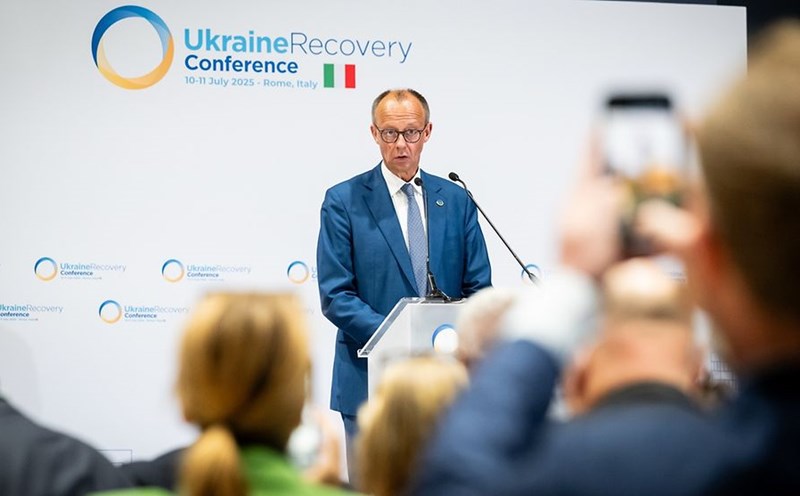Ukraine will receive the first batch of German-funded long-range missiles this July, Major General Christian Freuding, who coordinated German military aid to Kiev, confirmed in an interview with ZDF.
We are ready to provide these weapons systems. They will reach Ukraine before the end of July, Freuding said. According to this general, the number of weapons in this round will reach "hundreds", but did not disclose the specific type or range of fire.
However, he frankly emphasized the goal: "We need systems that can hit deep into Russian territory, attack their ammunition depots, command postures, airports and aircraft."
Notably, Mr. Freuding affirmed that the weapons to be transferred are not Taurus missiles - a cruise missile with a range of up to 500km that Kiev has repeatedly requested but Berlin has refused to provide them due to concerns about the risk of escalation.
Instead, the missile shipment comes under a contract between the Ukrainian Defense Ministry and domestic arms manufacturers, with funding provided by Germany, which was finalized at the end of May. According to analysts, Kiev's proactive production but reliance on European currency is a "rule" to overcome political barriers in the West.
General Freuding admitted that Ukraine is facing great difficulties on the battlefield. Russia advanced in small but steady steps, forcing Ukrainian forces to retreat to deeper defensive lines.
In the air, the situation got worse, especially in a recent night when Kiev was attacked by more than 700 UAVs and dozens of missiles.
While Ukraine accused Russia of mass attacks, the Russian Defense Ministry said it had only targeted military targets and not civilians.
The key point is German Chancellor Friedrich Merz's previous statement in May: Ukraine will not be restricted in the use of weapons purchased from German funding. This means that Ukrainian-made missiles could reach deep into Russian territory - a scenario that Berlin had previously tried to avoid.
Moscow immediately warned of the consequences. Kremlin spokesman Dmitry Peskov accused Germany of racing with France in pouring oil on the fire, asserting that any act of providing long-range missiles, especially Taurus, would inevitably lead to an escalation.
International public opinion is watching whether the long-range missile sponsorship move to Ukraine is a breakthrough in Germany's involvement in the conflict. As European money is transformed into long-range firepower, the possibility of expanding the conflict to Russian territory is inevitable.











